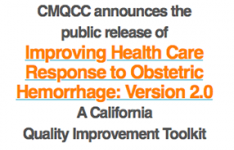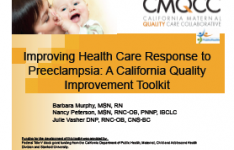News
Here's the recent news from PQCNC.
Register now to attend Critical Congenital Heart Disease (CCHD) - Efficiently and effectively providing this screening DescriptionAll newborns in North Carolina are required to be screened with pulse oximetry to identify cases of critical congenital heart disease (CCHD) and results of this screening must be reported to the state health department. Read more...
Three PQCNC hospitals, Duke Children’s Hospital and Health Center, Levine Children’s Hospital, and North Carolina Children’s Hospital at UNC, were named amongst the 50 Most Amazing Children’s Hospitals in the world. Read more...
This webinar should provide healthcare professionals with information on neonatal coding in ICD-10.Duration: 1 hourDate: Wed. July 29, 2015Time: 12:00 - 1:00 PM ETContinuing education credit is not available for this activity.Presenter Information Gilbert Martin, MD, FAAP Read more...
Watch the video to meet some of the preemie participants who wrote the inspiring letters in “Preemie Voices” book. The video provides a visual insight into the candid stories of young adults, both with and without disabilities. It is both powerful and educational and should be seen by former preemies, their parents, and health professionals. Learn more… Read more...
Interested in following the progress of our current initatives as well as what we're planning for the future? For occasional updates on our work please join the Perinatal Quality Collaborative of North Carolina Update list - we'll keep you informed without filling up your inbox. Sign up for our newsletter and never miss a thing... Read more...
The Joint Commission is retiring the Perinatal Care (PC) core measure PC-05a: Exclusive breast milk feeding considering mother’s initial feeding plan, effective with October 1, 2015, discharges. Read more...
The primary aim of the Toolkit is to guide and support maternity care providers, clinical staff, hospitals and healthcare organizations to facilitate timely recognition and an organized, swift response to postpartum hemorrhage. Read more...
Two new webinars (slides and audio) are available for review - a CMOP webinar, Improving Healthcare Response to Preeclampsia: A California Quality Improvement Toolkit and A NAS webinar, Neonatal Abstinence: University of Tennessee Medical Center Read more...








